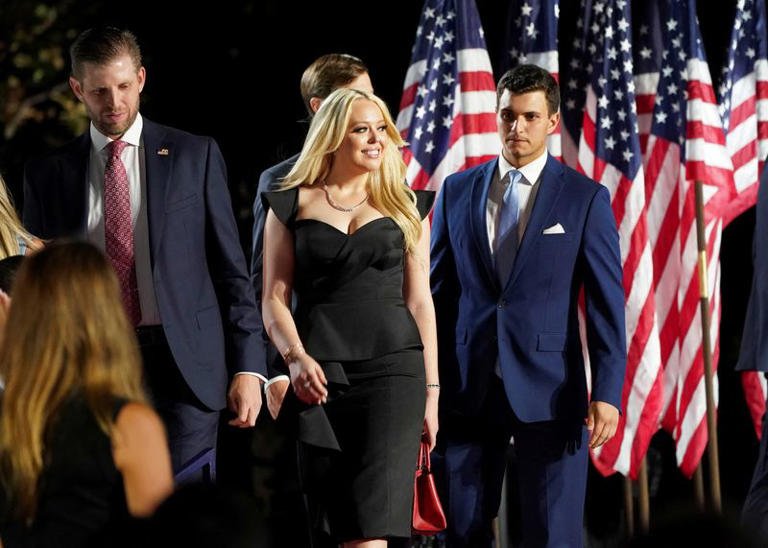Trump picks Massad Boulos to serve as adviser on Arab, Middle Eastern affairs

By admin
Trump Appoints Massad Boulos as Adviser on Arab and Middle Eastern Affairs
WASHINGTON/BEIRUT (Reuters) – U.S. President-elect Donald Trump has appointed Lebanese American businessman Massad Boulos as a senior adviser on Arab and Middle Eastern affairs, signaling a new approach to engaging with the region and its diaspora. The announcement was made Sunday via Trump’s social media platform, Truth Social.
Boulos, a billionaire entrepreneur with extensive international ties, is also the father-in-law of Trump’s daughter Tiffany, who married his son Michael Boulos in 2022. Known for his active outreach to Arab American and Muslim communities during Trump’s campaign, Boulos has been a key figure in mobilizing support for Trump’s policies and vision within these communities.
The appointment reflects Trump’s reliance on individuals with personal connections to his family and demonstrates his administration’s continued focus on strengthening ties with influential voices in Arab and Middle Eastern affairs.
A Strategic and Symbolic Choice
This appointment is the second in recent days involving Trump’s family in-laws. On Saturday, Trump announced that Charles Kushner, father of his son-in-law Jared Kushner, would serve as U.S. ambassador to France.
Massad Boulos’ selection, however, is uniquely significant given his deep-rooted connections to both the Middle East and the U.S. His father and grandfather were prominent figures in Lebanese politics, and his family’s influence spans decades. Notably, his father-in-law was a key financier of the Free Patriotic Movement, a Christian political party aligned with Hezbollah.
Boulos is among the rare figures able to maintain relationships with opposing factions in Lebanon’s highly divided political landscape. Sources close to Boulos describe his ability to navigate Lebanon’s sectarian rivalries, keeping ties with Hezbollah while simultaneously engaging with their staunchest critics, including the Lebanese Forces Party.
Aron Lund, a fellow at the Century Foundation, described Boulos as “uniquely placed to influence Trump’s Middle East policy,” given his combination of business acumen, political ambition, and strategic alliances.
Political and Business Background
Born in Lebanon, Boulos moved to the United States as a teenager, eventually becoming a U.S. citizen. He attended the University of Houston, earned a law degree, and built a business empire with significant interests in Nigeria and other parts of Africa. His ability to move between these different spheres of influence—political, economic, and cultural—has set him apart.
Boulos became a pivotal figure in Trump’s 2024 campaign, leveraging his Lebanese heritage and extensive network to rally Arab American and Muslim support, particularly in swing states like Michigan and Pennsylvania.
His efforts were instrumental in shifting the political allegiances of Arab American and Muslim voters, many of whom had supported President Joe Biden in 2020 but grew disenchanted with Democratic policies on the Middle East and other issues.
In Michigan, Boulos helped flip key segments of the state’s 300,000-strong Arab American and Muslim population. Campaign officials credited him with organizing weekly meetings with community leaders, hosting private events, and emphasizing Trump’s commitment to ending conflicts in the Middle East.
Mobilizing Support Across Communities
Boulos’ outreach extended beyond Lebanese Americans to include Iraqi Americans, Bangladeshi Americans, and Albanian Americans, among others. His personal engagements, including private dinners and discussions, helped bridge the gap between Trump’s campaign and diverse Middle Eastern and Muslim communities.
The Trump campaign invested heavily in this effort, reportedly spending tens of millions of dollars to mobilize Arab American and Muslim voters. Boulos himself spent weeks on the ground in key battleground states, assuring voters that Trump’s policies aligned with their interests.
Boulos also played a role in securing endorsements from influential figures, including imams and civic leaders. Notably, Trump won the support of Hamtramck’s Muslim mayor and members of Michigan’s Albanian community, reflecting the campaign’s success in reaching traditionally Democratic constituencies.
Challenges and Opportunities in Lebanon
While Boulos’ influence in the U.S. is rising, his political career in Lebanon has been more constrained. A member of the Greek Orthodox community, Boulos is limited by Lebanon’s sectarian power-sharing system, which reserves the presidency for Maronite Catholics and other senior roles for specific religious groups.
In 2018, Boulos made a brief attempt to enter Lebanese politics, running for parliament alongside pro-Hezbollah candidates. While the effort was unsuccessful, it highlighted his willingness to engage with Lebanon’s complex political environment.
Though he has not visited Lebanon in recent years, Boulos remains a figure of interest within the country. Some Lebanese citizens view his appointment in Trump’s administration as an opportunity for stronger ties between the U.S. and Lebanon.
“It’s a positive step,” said Hamdi Hawallah, a Lebanese man in his late 70s. “We hope he will work for Lebanon’s benefit. These days, we hold onto any hope we can.”
A Role with Global Implications
As Trump’s senior adviser on Arab and Middle Eastern affairs, Boulos is expected to play a key role in shaping U.S. policy in the region. His unique blend of business expertise, political connections, and cultural insight positions him as a potential bridge between the Trump administration and the Middle East.
For Boulos, this role offers the political clout he was unable to achieve in Lebanon. For Trump, it signals a strategic effort to broaden his administration’s appeal and influence among Arab and Muslim communities, both in the U.S. and abroad.
The appointment marks the beginning of what could be a transformative chapter in U.S.-Middle East relations under Trump’s leadership.



Leave a Reply